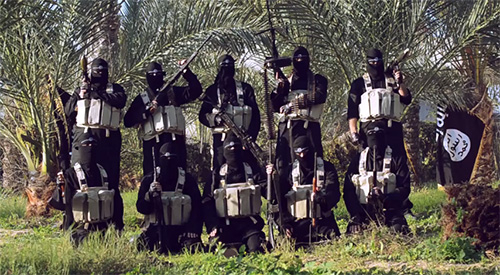 As the United States and Iran maneuver around one another to shore up the government in Iraq, the two countries are simultaneously negotiating Iran’s nuclear future.
As the United States and Iran maneuver around one another to shore up the government in Iraq, the two countries are simultaneously negotiating Iran’s nuclear future.
So the question arises: What would the Middle East look like if Tehran and Washington could actually reach a deal on the nuclear issue? Already, Secretary of State John Kerry is suggesting cooperation with Iran to halt the radical Sunni upsurge in Iraq. Despite the tortured history between the United States and Iran, there is some precedent for cooperation, including Iran’s willingness to provide intelligence on Al Qaeda after Sept. 11, 2001.
Britain’s foreign secretary, William Hague, has moved to reopen the British Embassy in Tehran, shut since 2011. “Iran is an important country in a volatile region” that has been “divisive and sectarian,” he said. He added, perhaps with more hope than experience: “Iran does have the capability to play a more positive role.”
OPEN MULTIMEDIA FEATURE
Few experts believe the deal can be done in a month, and some do not believe it can ever be done. After October, with two key negotiators, Catherine Ashton of the European Union and William J. Burns of the United States, scheduled to leave their jobs, and American midterm elections in full swing, a deal will be almost impossible, said Ali Vaez of the International Crisis Group. He said he believed August would be a propitious time for bargaining, because Ramadan will be over and the United States Congress in recess.
Mark Fitzpatrick of the International Institute for Strategic Studies said a deal is “impossible by July 20, and I’m not very optimistic at all that it can get done, period.” He explained: “I don’t see any hint that Iran would accept the limits on its nuclear program that it would have to accept to get a deal.” And no one is sure, at the crunch, where Iran’s supreme leader, Ayatollah Ali Khamenei, will come down.
“I suspect even Hassan Rouhani,” Iran’s president, “doesn’t know,” Mr. Fitzpatrick said. One European negotiator, comparing Washington with Tehran, said that “the mysteries of the interagency process pale by comparison to the intermullah process.”
The hard-liners in the negotiations — France and the Americans, supported by Britain — want an airtight deal with a low level of enrichment, a modest number of basic centrifuges, a tough regime of inspections and a long “breakout time” — the time it would take Iran to “race” for a bomb.
Iran, of course, denies ever desiring a bomb. While it has won its argument about keeping some enrichment, Iran wants to retain the centrifuges it has already installed and claims to need more. While the West wants a 20-year deal, including surprise inspections, the Iranians want no more than five years. And Iran is insisting that all economic sanctions be lifted immediately, which would remove the incentive, the West fears, for compliance.
The difficulties extend to Iran’s support for groups classified by the United States as terrorist, like Hamas and Hezbollah; Iran’s past involvement in bombings aimed at Americans and synagogues as far away as Argentina; and Iran’s missile program. Then there is the blood-drenched quagmire of Syria, where Iran and Hezbollah are fighting on behalf of President Bashar al-Assad.
Prior terrorism sanctions against Iran would outlive the nuclear sanctions, which will be hard enough to untangle. After all, the sanctions office in the United States Treasury has two parts — Iran and the rest of the world, and the Iran section is by far the larger.
The next obvious question is what the world would look like if Iran and the six powers fail to do a deal, with the United States and Israel vowing that a nuclear-armed Iran is unacceptable. Both countries may be bluffing about attacking Iran, but that is not a proposition anyone really wants to test.
This article was written by Steven Erlanger for the opinion page of the New York Times on June 19,2014
The Iran Project is not responsible for the content of quoted articles.

 QR code
QR code